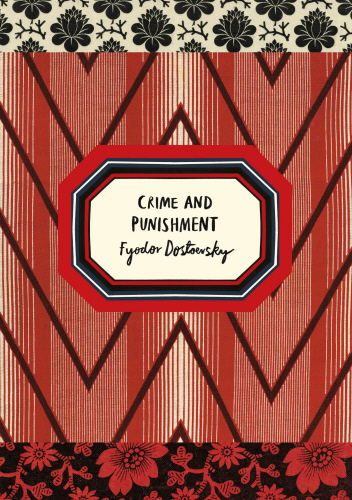This is a repeating event1 April 2025 5:30 pm
Dostoevsky's Crime and Punishment
Event Details
Event Details

Widely regarded as one of the greatest works of literature in any language, Crime and Punishment is a murder story in which we know the name of the murderer (Raskolnikov) right from the start. Even the title indicates that there will be some punishment in store and we are offered a straightforward reason for why he did it, but Dostoevsky’s tale takes us far beyond such a simple narrative, and it is in the complex vision which he unravels for us that the greatness of his novel is achieved.
Perhaps his most important decision as a writer is to tell the story from the murderer’s perspective. The character of the detective whose deciphering skills are often at the centre of such tales, is seen from the outside and may seem rather puzzling to us, whereas the inner psychological world of the murderer is exposed in astonishing detail. In Dostoevsky’s conversations with his fellow convicts in Siberia, he heard disturbing details of real life murders, and, it seems, wanted to include some of this acquired knowledge in his book. The result is a central character who has the power to intrigue, disturb and move us, despite being in the grip of dark, misguided ideas. From one angle, as readers, we may find him self-centred, bitter, repellent, even wicked, or in the grip of an evil spirit. On the other hand, we may discover a sensitive, impulsive and compassionate man of ideals, struggling with grief and poverty, and pursuing existential ideas around freedom and moral autonomy. We may of course oscillate in our judgment.
Dostoevsky’s complex skill is also evident in his creation of a chorus of vividly depicted characters, reacting in a variety of ways as they respond to Raskolnikov’s increasingly erratic behaviour. The resulting polyphonic effect in which, as suggested by the Russian critic Bakhtin, characters interact without a controlling authorial voice, reflects the fact that very general ideas have a place in the world of this novel, written in the 1860s when the liberalisation of Russian society went into reverse following an attempt on the life of the Tsar. Western political ideas and the growth of nihilism were seen to be in conflict with traditional Russian ideas, especially those concerning the role of the Tsar and the Russian Orthodox church. These conflicts provide a background to the events of the novel.
In the end, however, what is front of stage and stays with us is the extraordinarily vivid presentation of the characters, their confusions, their sense of being thrown from side to side by destabilising events. We may certainly include here the character of the city itself, St Petersburg, with its orderly neo-classical exteriors and dark complex interiors. It is no surprise that Dostoevsky’s exploration of the depths of the human psyche has been seen as a precursor to psychoanalysis, as well as to the literary experiments of modernism.
JOINING DETAILS:
- Seven week study on Zoom led by Keith Fosbrook and Sarah Snoxall
- Tuesdays, 5.30-7.30 pm (UK), 25 February to 8 April 2025
- Recommended edition: Crime and Punishment, Fyodor Dostoevsky, translated by Richard Pevear and Larissa Volokhonsky, Vintage Classics, ISBN: 9781784871970
- £280 for seven meeting study
Time
8 April 2025 5:30 pm - 7:30 pm(GMT+00:00)
Location
VIRTUAL - ON ZOOM
